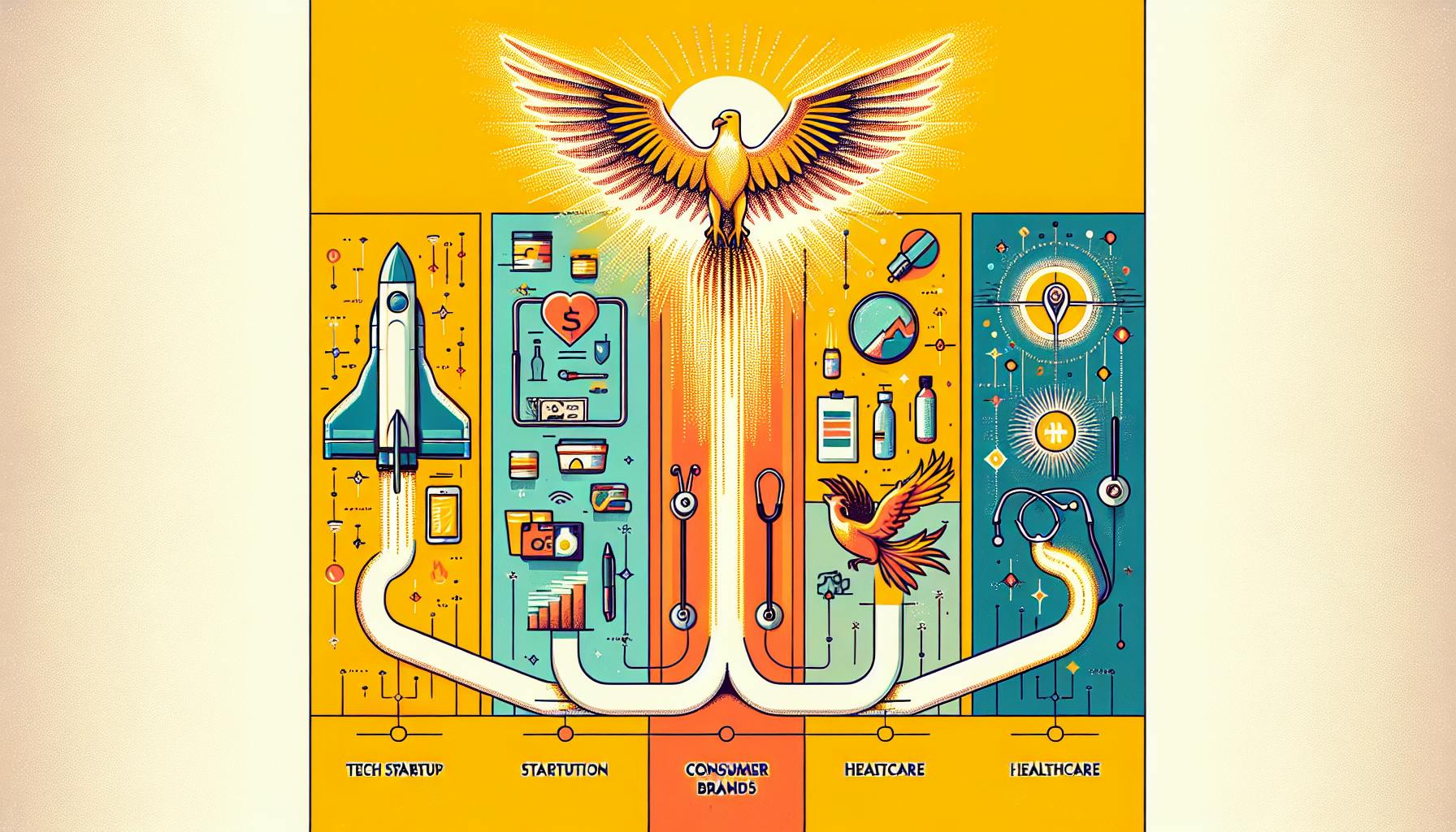Fractional CMOs are swiftly becoming a game-changer in marketing leadership, offering a blend of expertise, adaptability, and cost-efficiency that aligns perfectly with the dynamic needs of modern businesses. They're particularly valuable for startups and smaller companies looking for top-tier marketing insights without the full-time executive price tag. Here's a quick rundown of why fractional CMOs matter:
- Quick to Adapt: They can swiftly pivot marketing strategies to respond to market changes.
- Cost-Efficient: Offers significant savings over hiring a full-time CMO, allowing funds to be allocated elsewhere.
- Brings Fresh Ideas: With experience across various industries, they infuse new strategies and perspectives.
This introduction dives into how fractional CMOs are reshaping marketing leadership by filling critical gaps with their specialized expertise, strategic planning capabilities, and measurable impacts on business growth.
High Costs and the Need to Show Results
Hiring a full-time CMO is expensive, with top ones making more than $400,000 a year at big companies. But even with that big paycheck, they're still expected to prove they're helping the company grow. This is tough because many were trained more in creating catchy slogans than in tracking sales numbers.
- On average, CMOs only stay in their job for about 43 months, showing how hard it is to meet these expectations.
- 61% of company leaders want their CMOs to be more involved in making money, according to the ANA.
Falling Behind on the Latest Marketing Moves
Marketing changes super fast, with new tools and ways to reach customers popping up all the time. This makes it hard for traditional CMOs to keep up and make sure their plans are working.
- A Salesforce study found that 90% of companies think they're missing out on skills in new marketing tech and understanding customer data.
- There were only 150 marketing tech solutions in 2011, but by 2021, there were over 8,000, says Chiefmartec.
Not Having the Right Team
As marketing changes, companies need people who know the latest in analytics, digital advertising, and fresh ways to build brands. But finding a full-time CMO who can do all this is really tough.
- 61% of CMOs say not having the right team makes it hard to get good results, according to LinkedIn.
- Forrester says more than half of companies plan to hire more fractional, on-demand talent by 2025.
The Solution: Fractional CMOs Fill Critical Gaps
Fractional CMOs are like a smart fix for the big challenges marketing teams face today. They bring in the right skills and help save money, all without needing a full-time commitment.
Cost-Efficiency
- You spend a lot less on them than you would on a full-time CMO.
- Even with the savings, you still get someone to guide your marketing.
- This means you can use the extra money for things that help your business grow.
Specialized Expertise
- They know the latest in online marketing, data analysis, and social media.
- It's tough to find a full-time CMO who can do all this new stuff.
- They've worked in different places, so they bring new and creative ideas.
Flexibility and Scalability
- You can adjust how much help you need from them as things change.
- This way, you only pay for the marketing guidance you really need.
- They're great for when your business is growing or during busy times.
The Critical Roles Played by Fractional CMOs
Fractional CMOs are changing the game in marketing leadership. They're stepping in to offer big-picture strategy and hands-on expertise to help businesses grow, and they do it without the hefty price tag of a full-time boss. Here's how they make a big impact:
Strategic Planning and Execution
Fractional CMOs get down to business by:
- Figuring out smart marketing plans that match what the business wants, who they're selling to, and the competition.
- Putting together detailed plans for branding, running marketing campaigns, moving into digital, and deciding where to spend money.
- Helping teams carry out these plans by leading the charge.
They bring fresh eyes and new ideas to create plans that really work with what the business needs and what's happening in the market.
Marketing Optimization
Fractional CMOs make marketing efforts better by:
- Always testing and tweaking ads or campaigns to get more people to buy.
- Using tests and data on digital platforms to make sure the business gets the most bang for its buck.
- Changing up the plan based on the latest data and insights.
- Finding the right mix between making the brand known and getting customers quickly.
Their approach to try, learn, and focus on results makes them different from traditional marketing leaders.
Internal Team Leadership
Even though they're not there all the time, fractional CMOs:
- Make sure sales, marketing, and creative folks are all working towards the same goals.
- Encourage and teach the marketing team so they can work well together and do great things.
- Offer guidance and support to help team members grow and be more productive.
- Lead by example, showing how to make decisions based on data and not just gut feelings.
They play a key role in building teams that are really good at what they do, sharing their know-how and fostering a culture of learning and data-driven choices.
sbb-itb-5c5ac24
The Bottom-Line Impact of Hiring Fractional CMOs
Fractional CMOs bring real, measurable improvements to businesses. They help increase sales, get more leads, and improve how often those leads turn into customers. Their smart planning and advice lead to noticeable results.
[SaaS Company] Case Study
A company that makes project management software for businesses wasn't doing great at turning interest into actual sales. They were trying to get people's attention with online ads but weren't really making it easy for those people to buy.
They decided to work with a fractional CMO who knows a lot about digital marketing. In just 5 months, this expert changed how they figure out who's really interested in buying, created special content to draw these people in, and made their website better at catching leads.
Outcomes:
- Doubled the number of good leads
- 15% more sales started because of marketing
- Reached more customers in the construction business
With the fractional CMO's help, the company got better at finding and keeping the interest of their perfect customers, leading to more sales.
125% Increase in Marketing Originated Revenue
A startup selling comfy sports clothes online wasn't making enough sales. Their attempts at online ads weren't working well.
They brought in a fractional CMO who knows how to sell things online. This person fixed their ad targeting, made emails that feel personal, and tested different ways to show products on their site.
In a year, sales that started from marketing efforts went up by 125%. The fractional CMO's strategies helped the company reach and convert more customers.
33% Increase in Lead Conversion Rates
A digital marketing agency was good at getting people's attention but not great at turning that into sales. People would start to get interested but then leave before buying.
A fractional CMO came in with a plan to keep leads interested. They set up a system to better identify promising leads, automated follow-up messages, and made sure the messages matched what customers wanted. In 6 months, this approach increased the rate at which leads turned into sales by 33%.
Best Practices for Hiring a Fractional CMO
Hiring a fractional CMO can really help your business, but it's important to pick the right one. Here are some tips to help you find a great match for your company.
Defining Your Needs and Goals
- First, figure out what marketing problems you have and what skills you're missing.
- Write down what you want your business to achieve in the next 6-12 months.
- Make a list of what you need from a fractional CMO, like their skills and what you want them to do.
This step helps you tell potential hires exactly what you're looking for.
Asking the Right Questions
When you talk to candidates, ask about:
- Specializations - Are they good at online marketing, creating brand strategies, or doing market research?
- Strategies - How would they tackle your marketing issues?
- Past results - What successes have they had? How have they improved sales or optimized budgets?
- Success metrics - How do they measure if their marketing is working?
Compare their answers with your goals to see if they're a good match.
Structuring the Engagement
- Define scope - How much do you need them? A few hours a week or just for a project? Will you pay a monthly fee?
- Set objectives - What do you want to achieve in 6, 12 months?
- Communication cadence - How often will you check in with each other?
- Success criteria - How will you know if the marketing is paying off?
Agree on how much they'll be involved, set clear goals, and decide how you'll track progress. This helps everyone aim for the same targets.
Conclusion
Fractional CMOs - The Future of Marketing Leadership
Fractional CMOs are changing the game in how companies handle their marketing. They bring a lot to the table:
- Experience and new ideas from working with different companies and industries
- Deep knowledge in important areas like online marketing and using data to make decisions
- Flexibility and saving money - you only pay for the help you need
- Real results - they use data to make smart decisions that help sell more and make your marketing dollars go further
In today's world, where marketing needs to quickly adjust and show it's worth the investment, fractional CMOs are perfectly suited to help businesses do just that.
When you need specific skills, want to spend your budget wisely, or need a clear plan, fractional CMOs are there to help. They're becoming a big part of the future of marketing leadership because they're adaptable, skilled, and focused on growth.
As marketing keeps changing, more companies might start using fractional CMOs to get ahead. They're great for bringing in top-notch marketing know-how without the cost of hiring someone full-time.
For any business looking to grow, refresh their brand, or get more from their marketing budget, a fractional CMO could be the push you need. They're making it easier for more businesses to get expert advice that was once only available to the biggest companies.
As we keep seeing changes in the business world, the role of fractional CMOs will likely become even more important. They ensure that businesses of all sizes can succeed with smart, data-driven marketing guidance.



